World
Out in the World: LGBTQ news from Europe and Asia
Norway is the latest country to ban conversion therapy

EUROPEAN UNION
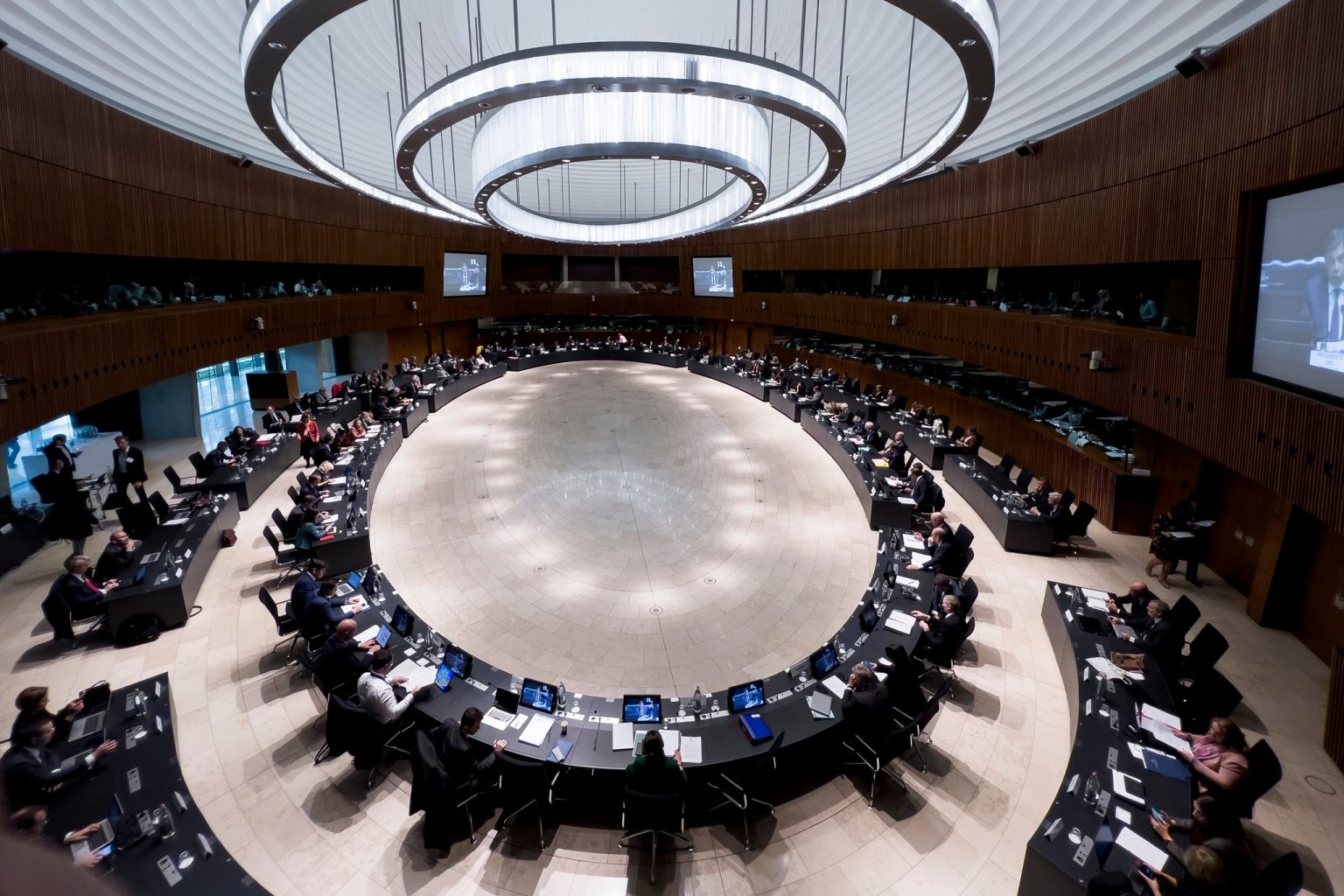
A new European Parenthood Certificate was approved by the European Union Parliament on Dec. 14, which included the recognition of same-sex parents. With 366 votes against 145 and 23 abstentions, MEPs backed draft legislation to ensure that, when parenthood is established by an EU country, the rest of the member states will recognize it.
The aim is to make sure that children enjoy the same rights under national law regarding education, healthcare, custody or succession.
When it comes to establishment of parenthood at national level, member states will be able to decide whether to, for example, accept surrogacy, but they will be required to recognize parenthood established by another EU country irrespective of how the child was conceived, born or the type of family it has.
Member states will have the option not to recognize parenthood if manifestly incompatible with their public policy, although this will only be possible in strictly defined cases. Each case will have to be considered individually to ensure there is no discrimination (i.e. against children of same sex parents.)
“No child should be discriminated against because of the family they belong to or the way they were born. Currently, children may lose their parents, legally speaking, when they enter another member state. This is unacceptable. With this vote, we come closer to the goal of ensuring that if you are a parent in one member state, you are a parent in all member states,” said lead MEP Maria-Manuel Leitão-Marques (Portugal) following the vote.
Two million children may currently face a situation in which their parents are not recognized as such in another member state. While EU law already requires parenthood to be recognized under a child’s EU rights, this is not the case for the child’s rights under national law.
Parliament called for cross-border recognition of adoptions in 2017 and welcomed the commission’s initiative in its 2022 resolution. The commission proposal for a regulation aims to close the existing loopholes and ensure that all children can enjoy the same rights in each member state.
NORWAY
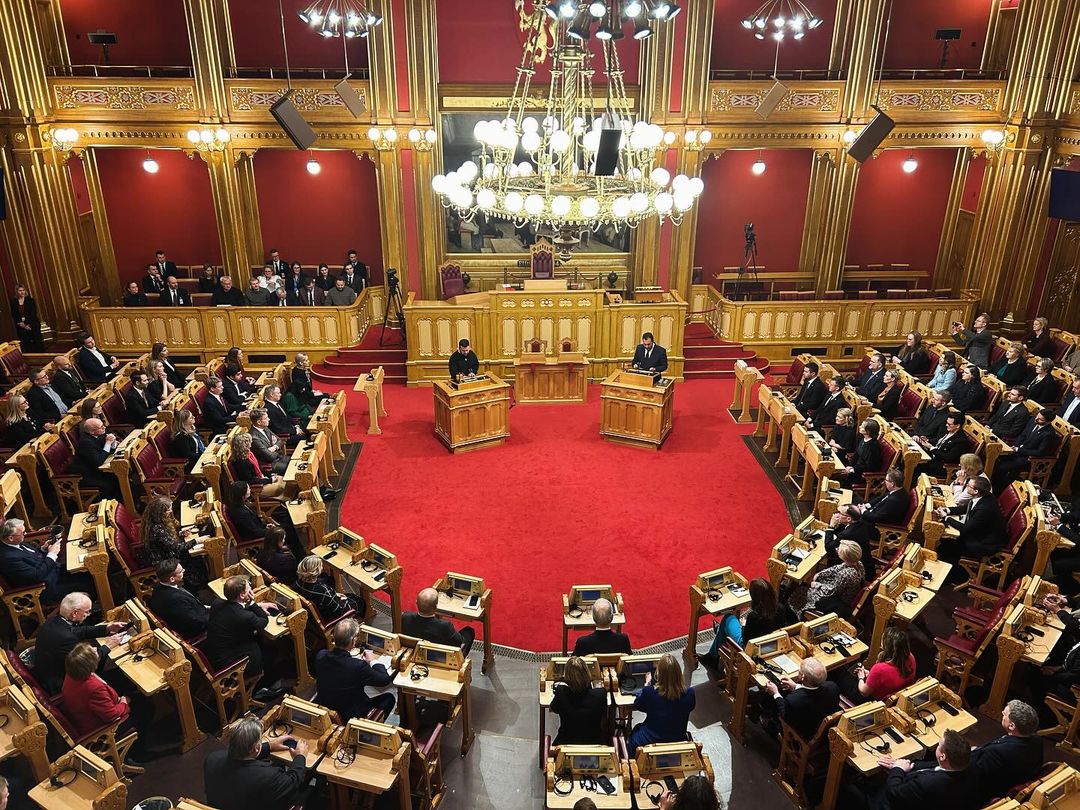
The Norwegian Parliament on Dec. 12 approved a law that would make the practice of conversion therapy illegal and a criminal offense. In the 85-15 vote, lawmakers codified the bill first introduced in June 2019 by Justice and Emergency Minister Emilie Enger Mehl and Culture and Equality Minister Anette Trettebergstuen.
The law will make it a criminal offense to try to get others to change their sexual orientation or gender identity through, among other things, medical, alternative medicine or religious methods.
The penalty will be three years’ imprisonment, or six years in more serious cases.
In a statement released by her office, Åse Kristin Ask Bakke, the elected representative to the Parliament from the constituency of Møre og Romsdal said: “We are finally putting an end to this harmful practice that has been going on for far too long. This is a historic day.”
Hilde Arntsen, the executive director of the Norwegian nonprofit FRI, the Association for Gender and Sexuality Diversity, an LGBTQ rights advocacy group, said in a statement: “Many queers have experienced painful and harmful attempts to change our identity through growing up and adulthood. Now, through a strong political majority, Norway has decided that attempts to change queer identity are unacceptable. Being queer is not a condition that requires therapy. We should be allowed to be in peace as who we are, and it is now illegal for anyone to try to change us.”
RUSSIA
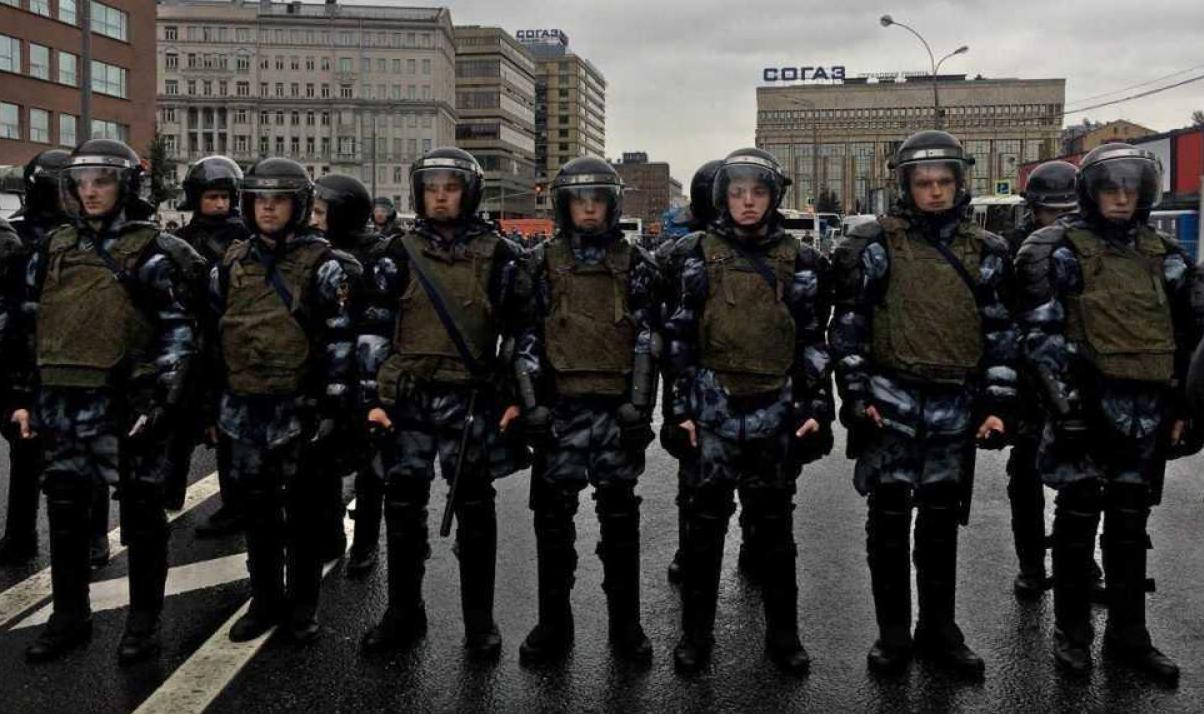
Less than a month after the Russian Supreme Court ruled that “the international LGBT social movement,” of which there is no legal entity, Russia’s elite special police force known as the OMON raided several gay clubs in the nation including the Ural regional capital city of Yekaterinburg as well as Moscow and St. Petersburg.
Russian media and Radio Free Europe/RL’s Russian Service reported that OMON raided the gay club Fame on the night of Dec. 10 in Yekaterinburg, detaining more than 100 people who were attending a theme party in the club. Authorities said the raid was prompted by reports from “concerned citizens” that the club was selling illicit alcohol and tobacco products.
Local media outlets report that of the people were detained at the club, all of them were released after their documents were checked.
POLAND
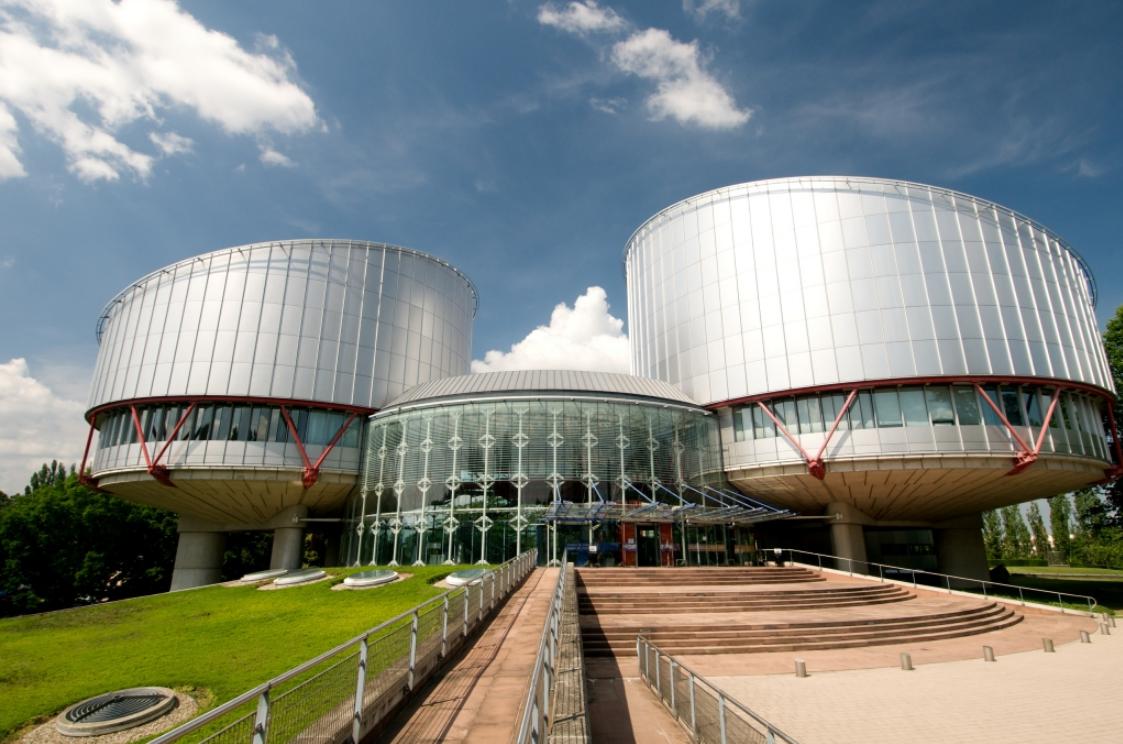
The European Court of Human Rights issued a ruling in a lawsuit brought by five Polish gay and lesbian couples that stated that the Polish government’s lack of legal recognition and protection for same-sex couples violated their human rights.
Polish national news outlet Dziennik Gazeta Prawna reported the ECHR rejected the Polish government’s arguments, which included that traditional marriage is part of Poland’s heritage, and found that “the Polish state had failed to comply with its duty to ensure a specific legal framework providing for the recognition and protection of same-sex unions.”
In its ruling ECHR, the court stressed the states signatory to the European Convention on Human Rights should “create a legal framework enabling people of the same sex enjoy the recognition and appropriate protection of their relationship through marriage or another form of union.”
In 2022, the Supreme Administrative Court ruled that same-sex marriages of Polish citizens legally married in other countries were not expressly forbidden under the country’s constitution.
Article 18 of the constitution states: “marriage as a union of a man and a woman, family, motherhood and parenthood are under the protection and care of the Republic of Poland.”
“Article 18 of the constitution cannot in itself constitute an obstacle to transcribing a foreign marriage certificate if the institution of marriage as a union of persons of the same sex was provided for in the domestic [legal] order,” the court ruled.
“The provision of the constitution in question does not prohibit the statutory regulation of same-sex unions,” said the court, adding that it was simply the case that “at present the Polish legislature has not decided to introduce such solutions” into Polish law.
According to Polish newspaper Gazeta Wyborcza, Poland is one of only six EU member states where same-sex couples cannot marry or register a civil partnership.
The majority of Polish people support LGBTQ rights surrounding marriage and family, according to research by Miłość Nie Wyklucza (Love Does Not Exclude.)
“It took a long time, definitely too long,” Grzegorz Lepianka, one of those who brought the case against Poland, told the Dziennik Gazeta Prawna. “But I finally have some hope for real and truly good changes.”
Judgment Przybyszewska v. Poland – Lack of any form of legal recognition and protection for same-sex couples in Poland breaches the Conventionhttps://t.co/VPRGyyFanL#ECHR #CEDH #ECHRpress pic.twitter.com/0XIOkBkTwO
— ECHR CEDH (@ECHR_CEDH) December 12, 2023
Before the judgment in the case of the five Polish couples, the ECHR had already ruled in similar cases against Italy, Russia, Romania and Bulgaria. The judgment in Italy had a real impact on the situation of same-sex couples, because civil partnerships were introduced shortly after it.
SWITZERLAND
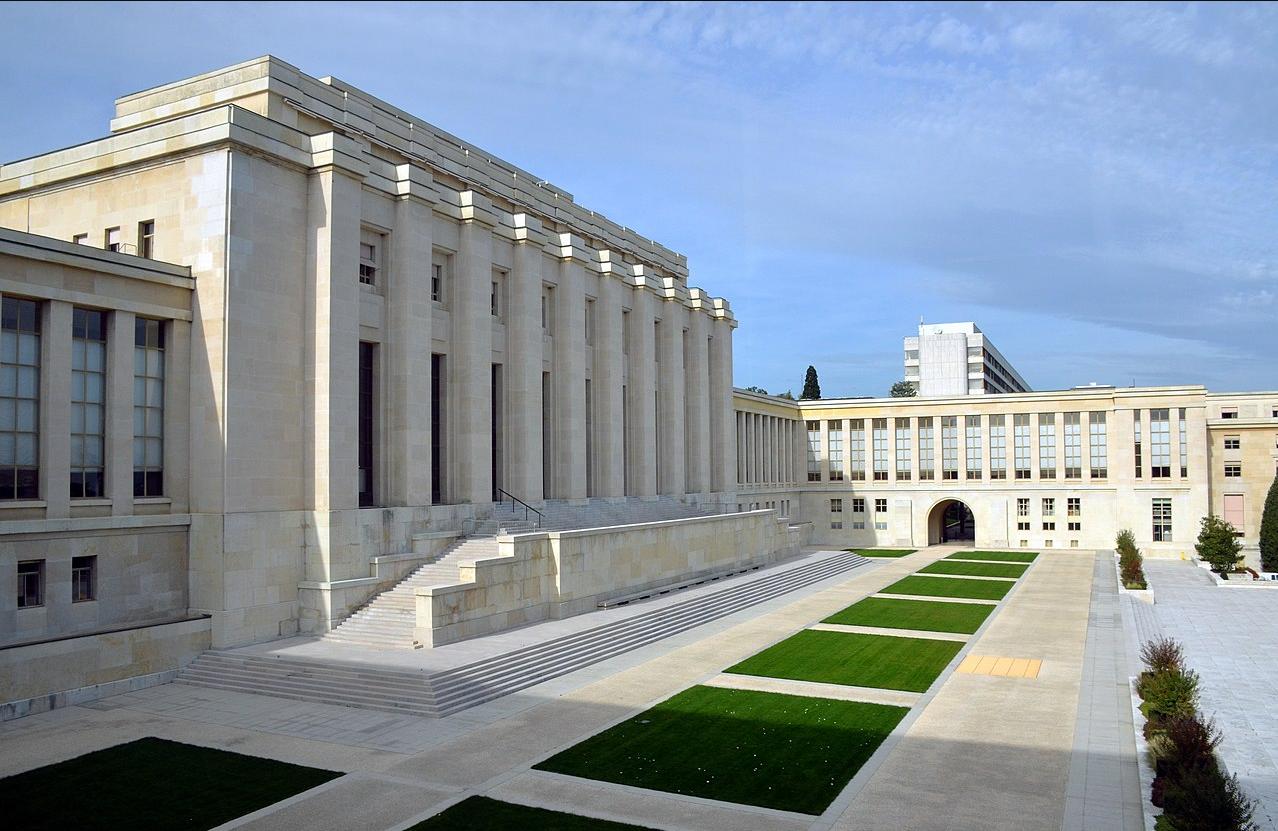
The first edition of the Intersex Legal Mapping Report published by ILGA World found that a large majority of U.N. member states have yet to make any sufficient legal attempt to protect intersex people’s right to bodily integrity and autonomy.
The report features an overview of how each of the 193 UN member states is faring regarding the protection of the human rights of intersex people.
The study is a ground-breaking global survey on legal protections for people born with variations in sex characteristics. Intersex people are born with variations of sex characteristics, such as genitals, reproductive organs, hormonal and chromosomal patterns, that are more diverse than stereotypical definitions of male or female bodies.
Up to 1.7 percent of the global population is born with such traits; yet, because their bodies are seen as different, intersex children and adults are often stigmatized and subject to harmful practices – including in medical settings – and discriminated against.
“As of July 2023, only six UN member states adopted laws prohibiting unnecessary medical treatments, surgeries, and other interventions modifying the sex characteristics of intersex minors without their free, prior, and fully informed consent,” said Crystal Hendricks, chair of ILGA World’s Intersex Committee. “This striking dearth of legal protection is still a reality despite the unanimous, systematic, and urgent calls of intersex civil society and international human rights bodies. And yet, current positive trends give us reasons for hope.”
ILGA World’s Intersex Legal Mapping Report documents how the past 15 years have seen a rapid increase in legal developments emerging to improve the situation of intersex individuals. As of July 2023, seven UN member states had introduced national legislation prohibiting discrimination on the grounds of sex characteristics; five states adopted legal provisions on liability for offenses committed on the same grounds and seven introduced other legal norms aiming to improve intersex people’s equal enjoyment of their human rights. In addition, there is a growing number of national and subnational legal developments aimed at addressing the needs of the intersex community.
JAPAN

Earlier this month one of Japan’s largest publishing companies announced that it was cancelling publication of the Japanese version of Abigail Shrier’s anti-transgender book, Irreversible Damage: The Transgender Craze Seducing Our Daughters.
The Tokyo-based Kadokawa Corporation said in a statement that the translated book could ultimately end up causing harm to people “directly involved with the Japanese trans community.” The Japanese book’s title would translate as “that girl’s become transgender, too: The tragedy of the sex-change craze being contagious through social media.”
“We planned to publish the translation, hoping it would help readers in Japan deepen their discussions about gender through what is happening in Europe and the United States as well as other matters,” Kadokawa said.
“But the title and sales copy ended up causing harm to people directly involved” in transgender issues, the company said. “We sincerely apologize for it.”
PinkNewsUK reported that on X, formerly Twitter, there was a huge backlash against Kadokawa’s initial promotion of the book. Trans rights advocates planned a protest outside the publisher’s corporate headquarters in Tokyo, a move that has now been cancelled.
After the decision, one social media user wrote that while it was good that the book had been pulled, they worried that “future measures” to prevent similar incidents remain “unclear and unsatisfactory” so couldn’t be sure if Kadokawa’s apology to the trans community was genuine.
Shrier, an opinion writer for The Wall Street Journal, took to X to share her displeasure that the “very nice” publisher had caved in PinkNewsUK added.
“By caving to an activist-led campaign against Irreversible Damage, they embolden the forces of censorship,” she wrote. “America has much to learn from Japan, but we can teach them how to deal with censorious cry-bullies.”
Additional reporting from Bergens Tidende, Agence France-Presse, the BBC, Radio Free Europe, Dziennik Gazeta Prawna, ILGA, PinkNewsUK and the Japan Times.
Afghanistan
ICC issues arrest warrants for Taliban leaders over persecution of LGBTQ people, women
Groups ‘non-conforming’ with group’s gender policy targeted

The International Criminal Court on Tuesday issued arrest warrants for two top Taliban officials accused of targeting LGBTQ people, women, and others who defy the group’s strict gender norms.
The warrants are for Hibatullah Akhundzada, the Taliban’s supreme leader, and Afghanistan Chief Justice Abdul Hakim Haqqani.
“Based on evidence presented by the Office (of the Prosecutor), the judges found that there are reasonable grounds to believe that they have committed — by ordering, inducing, or soliciting — the crime against humanity of persecution, under article 7(1)(h) of the Rome Statute, on gender grounds, against girls, women, and other persons non-conforming with the Taliban’s policy on gender, gender identity or expression; and on political grounds against persons perceived as ‘allies of girls and women,’” reads an ICC press release that announced the warrants.
Karim Khan, the ICC’s chief prosecutor, in January announced a request for warrants against Taliban officials over their treatment of women and other groups since they regained control of Afghanistan in 2021. The request marked the first time the court specifically named LGBTQ people as victims in a gender persecution case before it.
“The issuance of the first arrest warrants in the situation in Afghanistan is an important vindication and acknowledgement of the rights of Afghan women and girls,” reads the press release the ICC released on Tuesday. “It also recognizes the rights and lived experiences of persons whom the Taliban perceived as not conforming with their ideological expectations of gender identity or expression, such as members of the LGBTQI+ community, and persons whom the Taliban perceived as allies of girls and women.”
A report that Outright International released in 2023 notes Taliban officials have systematically targeted LGBTQ people — especially gay men and transgender women.
Taliban officials have subjected them to physical and sexual assault as well as arbitrary detention. The Outright International report also notes Taliban authorities have carried out public floggings for alleged same-sex sexual relations, and have collected intelligence on LGBTQ activists and community members.
Artemis Akbary, executive director of the Afghanistan LGBTIQ Organization, praised the ICC.
“Today is a historic moment for LGBTIQ victims and survivors,” he said on social media.
El Salvador
#JusticiaParaKarla: una lucha por el derecho a la identidad en El Salvador
Karla Guevara inició su camino legal y personal en 2020
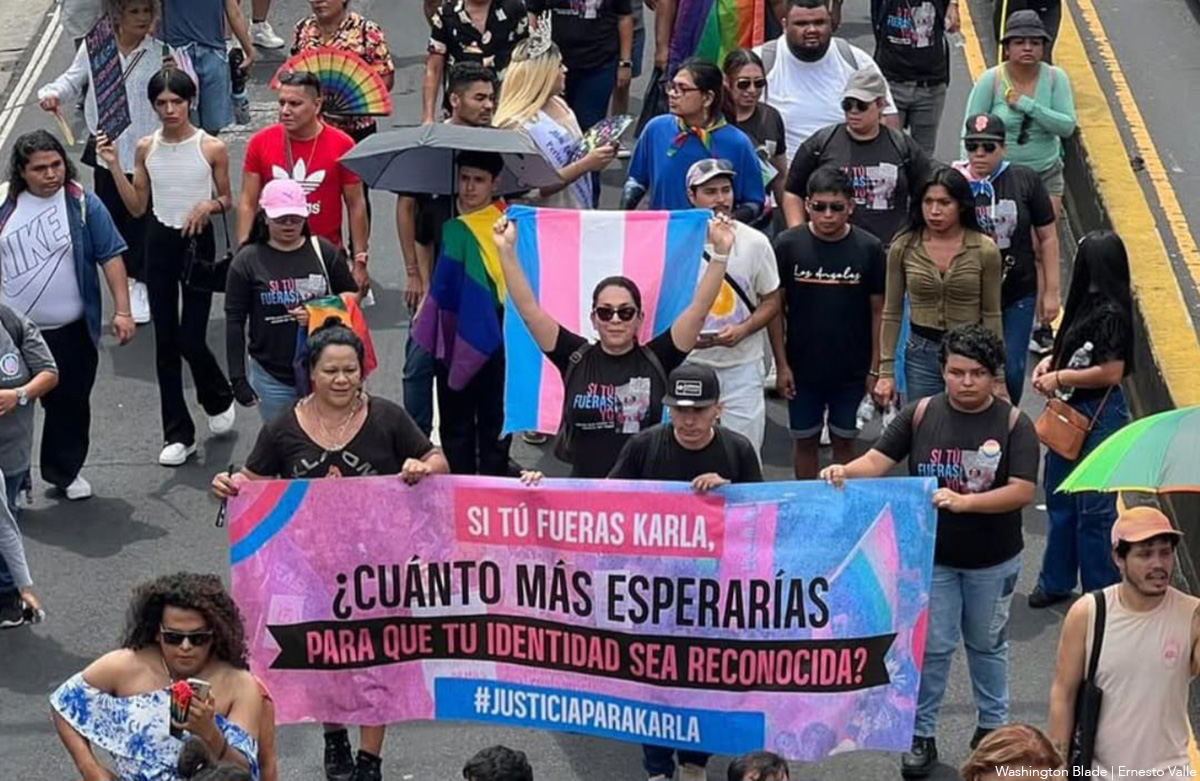
Cinco años han pasado desde que Karla Guevara inició un camino legal y personal para lograr que su nombre y género sean reconocidos en su Documento Único de Identidad (DUI). Cinco años de sentencias, apelaciones, puertas cerradas y vulneraciones que hoy se resumen en una sola palabra: resistencia.
En medio de un país que aún arrastra estructuras jurídicas y sociales poco sensibles a las realidades trans, Guevara se ha convertido en una voz visible. No solo por la denuncia pública de su caso, sino por su capacidad de transformar el dolor en acción: ha iniciado la campaña #JusticiaParaKarla, la cual acompaña con conversatorios llamados “Si tú fueras yo” en diferentes zonas del país.
Su historia se remonta al año 2018, cuando, junto a otras tres defensoras de derechos humanos —Mónica Hernández, Bianca Rodríguez y Verónica López— interpuso una demanda para lograr el cambio de nombre legal. La acción se inspiró en la Opinión Consultiva 24/17 de la Corte Interamericana de Derechos Humanos, que obligó a los Estados miembros de la OEA a garantizar los derechos de las personas trans, incluyendo el reconocimiento de su identidad.
A diferencia de sus compañeras, cuyo proceso fue resuelto favorablemente, Guevara fue la única a quien el Estado salvadoreño le negó el derecho, incluso tras contar con una sentencia favorable. El camino ha sido empinado, desgastante y doloroso, y ha implicado múltiples etapas legales con resoluciones contradictorias.
El 8 de enero de 2020, el juzgado declaró su demanda improponible. Guevara apeló el 22 de ese mismo mes, pero la Cámara de Familia desestimó su recurso. Aun así, perseveró. En abril de 2021 presentó una segunda apelación, y en septiembre se revocó la decisión del juzgado, ordenando admitir su demanda. Una pequeña luz parecía abrirse.
En agosto de 2022, después de varios peritajes que, según Guevara, incluyeron momentos donde se sintió expuesta y violentada, recibió una sentencia favorable: se autorizaba su cambio de nombre y género en la partida de nacimiento. Sin embargo, esta victoria fue parcial y breve. Aunque se ordenó marginar su partida, no se ordenó cancelarla como en otros casos similares.
El 4 de octubre de ese mismo año, la sentencia fue enviada al Registro del Estado Familiar. Pero la respuesta institucional fue sorprendente: el 3 de noviembre, la Alcaldía de San Salvador se negó a realizar el cambio. El jefe del registro y el registrador presentaron un amparo ante la Sala de lo Constitucional, paralizando el proceso.
“No solo me lo negaron, sino que ahora me exponen a un juicio aún mayor”, expresa Guevara. La frustración y la indignación fueron creciendo. En febrero de 2023, presentó una denuncia ante la Fiscalía General de la República, aunque lo hizo con poca esperanza. “Temía que no harían nada”, dijo. Y el 16 de abril de 2024, sus temores se confirmaron: la Fiscalía archivó el caso alegando que “no existe delito que perseguir”.
El 19 de noviembre de ese mismo año, Guevara decidió acudir a instancias internacionales y presentó su caso ante la Comisión Interamericana de Derechos Humanos. La CIDH ya notificó al Estado salvadoreño y le otorgó un plazo de cuatro meses para responder por qué no ha ejecutado el cambio ordenado por el juzgado.
“Obviamente no van a dar respuesta”, lamenta Guevara. Lo dice con la voz entrecortada, como quien ya ha llorado mucho, pero no ha perdido la voluntad de hablar. Reconoce que el proceso le ha afectado emocionalmente. “Cada vez que hablo de esto se me corta la voz”.
Las heridas no solo vienen de las oficinas estatales, sino también de las calles. Las miradas, los comentarios, el momento de presentar el DUI en cualquier trámite. “Es como si cada vez tuviera que explicar mi existencia. Es un juicio constante sobre quién soy”.
Guevara no está sola. Reconoce que hay otras personas trans en la misma situación. “Lo preocupante es que solo pasa en algunas zonas del país. En otras ha habido casos exitosos”, afirma. La disparidad en el trato revela una preocupante arbitrariedad institucional.
Uno de esos casos exitosos es el de Valeria Mejía, coordinadora de monitoreo y evaluación de ASPIDH. Su DUI ya refleja su nombre identitario, aunque no su género.
“Cuando recibí mi DUI con el nombre que me identifico pensé: aquí empieza una nueva vida”, relata.
Para Mejía, el cambio fue profundamente simbólico. “Uno ve pasar toda su vida frente a los ojos. Toda la discriminación, todos los rechazos. Sentí que algo sanaba”. A pesar de ello, su género asignado al nacer sigue apareciendo en el documento, lo que le genera inseguridad.
“El problema es que tengo que ir a todas las instituciones donde aparezco con mi nombre anterior. En el Seguro Social, por ejemplo, aún estoy registrada con el nombre masculino y no pueden atenderme, aunque el número del DUI sea el mismo”, explica.
Casos como los de Guevara y Mejía visibilizan una problemática estructural: el Estado salvadoreño no garantiza de forma uniforme el derecho a la identidad de las personas trans. Las resoluciones favorables son solo el primer paso. Su implementación efectiva aún tropieza con prejuicios, burocracia y omisiones.
Con la campaña #JusticiaParaKarla, la activista busca más que una solución a su caso personal. Busca generar conciencia, exigir coherencia legal y empujar una transformación cultural. En la marcha del 17 de mayo contra la LGBTIfobia, su presencia se hizo notar con camisetas, banners y mensajes que interpelan directamente al sistema.
Guevara ha hecho de su cuerpo, su voz y su historia una herramienta de resistencia. En cada conversatorio de “Si tú fueras yo”, invita a imaginar, a empatizar, a incomodarse.
“Lo que me pasa a mí le puede pasar a cualquier persona trans. Y si el Estado no nos reconoce, nos niega también la posibilidad de existir plenamente”, expresa.
Hoy, la resolución está en manos de la CIDH y el tiempo corre. La lucha de Guevara ya no es solo por una partida de nacimiento. Es por el derecho a ser, a vivir sin miedo, a que el nombre que la representa no siga siendo un motivo de juicio, burla o rechazo.
Mientras tanto, sigue esperando. Sigue alzando la voz. Sigue sembrando esperanza en quienes vienen detrás. Porque como ella misma dice: “Esto no se trata solo de mí. Se trata de justicia”.
China
Female writers arrested in Chinese crackdown on gay erotic fiction
Pingping Anan Yongfu arrested last month, detailed ordeal on Weibo

On China’s Weibo, a platform akin to a digital town square, a young woman using the handle Pingping Anan Yongfu laid bare a harrowing ordeal. She was arrested and subjected to a humiliating strip search for publishing gay erotic fiction. Her raw and unsparing account exposed a broader clampdown.
Since February, at least 30 other writers — mostly women in their 20s — have shared similar stories of law enforcement raids, their lives upended for crafting “danmei,” a genre of male-male romance often laced with explicit themes, on Haitang Literature City and other platforms.
”I will never forget it — being escorted to the car in full view,” posted Pingping. “Enduring the humiliation of stripping naked for examination in front of strangers, putting on a vest for photos, sitting in the chair, shaking with fear, my heart pounding.”
A wave of legal limbo engulfs the writers, with many released on bail or awaiting trial, their fates uncertain, according to a BBC. Others remain behind bars, their detention a stark reminder of the crackdown’s reach.
Beyond those arrested, a broader net has been cast: scores of contributors to Haitang Literature City have been hauled in for interrogations, their online words now a potential liability under China’s pornography laws for producing and distributing obscene materials.
China’s pornography laws cast a long shadow over writers, with those profiting from their work facing prison terms exceeding a decade for crafting “explicit descriptions of gay sex or other sexual perversions.” Yet, heterosexual erotica often escapes such scrutiny, slipping through the cracks of enforcement. Nobel Laureate Mo Yan, whose novels brim with graphic sexual scenes, and Jia Pingwa, known for vivid depictions in works like “Abandoned Capital,” and other acclaimed writers continue to publish freely, their books lining shelves without fear of raids. This stark disparity underscores a selective crackdown, where gay erotica bears the brunt of official censure.
Beijing’s unease with the online outcry was palpable, as the trending hashtag #HaitangAuthorsArrested, which amassed more than 30 million views on Weibo, vanished abruptly under censorship’s heavy hand. Posts offering legal advice to the embattled writers were scrubbed, and a detailed report on the crackdown by Caixin, a leading Chinese news outlet, was swiftly taken offline. Writers’ accounts, including some of their pseudonymous handles, have also begun to disappear, erased from the digital landscape as authorities tighten their grip.
As her post ricocheted across China’s digital sphere, Pingping abruptly deleted it, replacing it with a brief message expressing gratitude to supporters while conceding she had broken the law. The admission, tinged with resignation, marked her final act on Weibo before she erased her account entirely, vanishing from the platform amid mounting pressure from authorities.
“Danmei,” a vibrant subgenre of Chinese fiction, centers on romantic and often sexually explicit relationships between men, captivating a largely female readership through its blend of emotional depth, fantasy, and forbidden desire. Rooted in Japanese “yaoi” or “boys’ love,” but distinctly shaped by Chinese cultural sensibilities, it flourishes on Haitang Literature City and JJWXC and other platforms where writers craft sprawling tales of historical, fantastical, or modern love that often laced with themes of power and sacrifice.
Despite its popularity — bolstered by blockbuster adaptations like “The Untamed,” which amassed millions of fans — “danmei” faces intense scrutiny in China, where authorities deem its explicit content “obscene” under vague pornography laws. This tension reflects a broader cultural clash: while “danmei” offers a space for exploring queer identities and challenging traditional gender norms, its underground allure draws both devoted fans and the wary eye of censors seeking to uphold conservative values.
A sweeping crackdown in late 2024 saw Chinese authorities prosecute roughly 50 “danmei” writers, ensnaring them in a legal dragnet under the country’s 2004 obscenity laws. Among them, Yuan Shang Bai Yun Jian, a prominent author who earned 1.85 million yuan ($250,874.58) from her work on Haitang Literature City, was sentenced to nearly five years in prison, her success weaponized as evidence of “obscene materials for profit.”
The harsh penalties, which outstrip those for some violent crimes, sparked outrage online, with netizens decrying the disproportionate punishment for crafting stories that, while explicit, harmed no one.
Chinese media regulator banned ‘danmei’ TV dramas in 2022
Humiliation washed over Pingping as law enforcement stormed into her college classroom, recounted a writer using the Weibo handle “Tianxia Ju Da Bingyuan” or “The World Is a Vast Asylum.” Dragged from her lecture under the stunned gazes of her peers, she endured a public spectacle as officers trailed her to her dormitory, rifling through her belongings in a search for evidence of her “danmei” stories, leaving her exposed and her privacy shattered.
“Danmei” novels, centered on male-male romance have spurred numerous Chinese television dramas, but state censorship has sharply reduced their output. A 2021 Sixth Tone report identified more than 60 “danmei”-based dramas in development or slated for release, involving actors who include Chen Feiyu and Fan Chengcheng. Many of them, however, were halted following the 2022 National Radio and Television Administration ban on such adaptations.
MyDramaList records 16 aired series, including “The Untamed” (2019) and “Word of Honor” (2021), each with 30–50 actors, totaling approximately 480–800 performers. Lead actors, including Xiao Zhan and Wang Yibo, earned $1–3 million per series, per The China Project, while others made $50,000–$100,000, though precise figures remain limited due to private contracts. The 2021 “Internet Clean-up Campaign” and continued restrictions have significantly curbed new “danmei” adaptations.
-

 Virginia1 day ago
Virginia1 day agoDefying trends, new LGBTQ center opens in rural Winchester, Va.
-

 South Africa4 days ago
South Africa4 days agoLesbian feminist becomes South African MP
-

 Travel3 days ago
Travel3 days agoManchester is vibrant tapestry of culture, history, and Pride
-

 Opinions2 days ago
Opinions2 days agoUSAID’s demise: America’s global betrayal of trust with LGBTQ people












